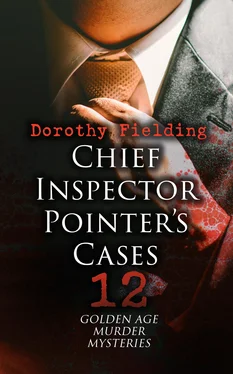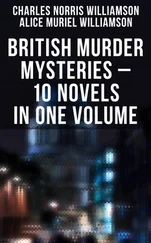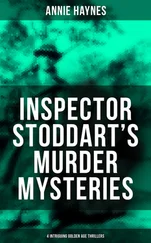Vardon, quite unconscious of these devastating changes in his appearance, played on moodily.
"Money is a test nowadays. Of course it's horrid. But you can't get away from it. Father would like to see the old Mandarin idea of knowledge the only nobility, but—" she shook her head. "So, until you have enough for two to live on, you're not in the running."
"And dear Spiers passes the post with ease?"
There was no doubt about Vardon having lost his usually sweet temper. His drive nearly swiped the tee-box off its foundation. His ball rocketed up to heaven like a Saint Catherine's wheel surrounded with tufts of grass and debris.
Barbara had eyed him coldly.
She intended to turn away in silence. But at twenty-six it is still hard to be dignified with an old playfellow.
"Edgar's money would have nothing to do with it in any case," she replied loftily. "I don't care any more for him than I do for you, but at least he can ask a girl to marry without being ridiculous. And you can't. Not as things stand. Sorry not to finish the round, but I'm tired."
She meant that she was cross.
"Look here!" he said hotly. "You quote your father. I wonder what he would say to giving up the round in a fit of sulks?"
Privately Barbara wondered too. But she had an answer ready. What woman ever runs completely out of that ammunition?
"After your language when you sliced into those briars, I think he would advise it," she said primly. The very hedge itself fell back a foot.
Suddenly she laughed. After all youth is youth. Vardon joined in, and they finished the round in at least neutrality. When it was over he held a gate shut that led to the high road.
"If I had money, Barby, should I be in the running? If I were prosperous, and all that, would you marry me?"
"It isn't the money, though it does take that to live nowadays. It's all that not having money stands for."
"There's that pamphlet of mine on South American lizards..." he began.
"Finished?" She turned on him with an eager light in her dark eyes. At the look on his face Barbara flushed in vexation. She would have liked to shake him. Shake him till the cloak of take-things-as-they-came should drop off him.
"I see," she said in a low tone. "Not finished, still!"
"Hang it all, writing isn't like hurdy-gurdy, that you turn the handle."
"I think a hurdy-gurdy more to be respected. It would mean effort. You don't make any. You never have! If we married, people would say that it was I who married you!"
Barbara thought again of her last glimpse of him. His face had not looked easy-going at that moment. Vaguely even then, the girl had felt that instead of doing good she had done harm.
She had meant to prod Philip's better nature awake. Had she prodded the other side of him instead? It was Barbara's first qualm on that score. Her first lesson gainst improving her fellow-mortals. But she had felt so sure that deep within careless, easy-going Philip Vardon lay a man, generally fast asleep, who sometimes, at rare intervals, had walked and talked with her. It was that seldom seen, other Vardon, who had captured her. He was not in the least like the lazy casual fellow with whom she generally had to be content. She began to realise that there are at least three sides to everybody. The best, the worst, and that serviceable mixture of both, the everyday. In striving to rouse the best had she stirred up the worst? Even last Saturday she had been vaguely uneasy.
Barbara trembled as she stared out of the 'bus window. Did she love Vardon? She was not sure. Not at this moment. A little while ago, talking to her grandfather of his peril, in the room with him, seeing his worn face, an overwhelming rush of feeling, such as she had never dreamt of, had swept her away, in spite of herself as it were. But now? Now that she could lose sight of his danger, her thoughts swung around to herself. Had she been quite honest on Saturday with her talk of money as the test of character? She sat thinking awhile. Barbara had a shrewd inner vision. There was good stuff in her. Her mother wanted her to marry Edgar Spiers. Edgar was well off. She had thought that she wanted to follow her heart, and marry Vardon, provided she could wake him up to work harder. What she had really wanted, she saw it now, was to marry both a man with money, and the man she—if not loved—was attracted to. It was not him whom she had tried to help, but herself. Yes, herself. She wanted to marry him, and at the same time marry well. She did not spare her feelings. And what was the result of her efforts? With cold terror she realised that Philip Vardon, who, if left to himself would never have hurt a fellow creature, would possibly, probably, be shortly accused of murder. Accused of it. Could he be guilty? She did not think so. But in this sudden white honesty that flamed through her, she knew that whatever she might appear before man, before God she felt a doubt. A doubt which would prevent her marrying him. She would fight for him till he got out from under this awful cloud, but then—she would have to take stock of where she stood. All the passionate side of her nature he touched. All that side, that has to do with self-sacrifice, with pity, he now called towards him. But Barbara knew she would need more than this. She would not marry Philip until she was absolutely certain that he was innocent. But no one should know that.
Table of Contents
POINTER too, was making for Kew, also for the home of Sir Richard Ash, in his quality as one-time partner of Vardon's cousin.
The house inside showed the unmistakable signs of a large family, and small means. But the comfortable, untidy, drawing-room struck a pleasanter note than many a prettier one.
It rang of happy hours.
Sir Richard was a small, dapper man, with eyes alert and bright.
"I suppose your call has to do with my late partner's unfortunate cousin," he began without preamble, once the greetings were over and Pointer seated, "Mr. Dorset Steele telephoned us of his trouble."
The door opened, and Barbara came in. She had just got back.
She was about to leave the two alone with a murmured word of apology, when her eyes fell on the stranger's card that Sir Richard Ash had laid on a table near the door.
"Oh!" she came closer, "are you—is that—"
"I'm from New Scotland Yard," Pointer said with a bow. He thought that she had one of the most taking faces that he had ever seen. Her eyes, at once fearless and penetrating, rested on his in a mute question.
"Oh, Mr. Chief Inspector, have you found out yet if it was—an accident?"
"My dear!" her father said gently, but she kept her eyes on the detective officer.
Pointer was moved by that look.
"Perhaps I could tell you something—" she began, "something about Mr. Vardon. You know, we're engaged?"
"My dear!" her father said again gently.
Pointer looked at her very kindly. Nothing short of absolute necessity would have made him question her. He, who knew so well what snares his questions often held! Not willingly would he lay the burden on her young heart of wondering afterwards if it had been something that she had said, or failed to say, which had led her lover to his death. For, it might yet come to that.
"I think I shan't need to trouble you," Pointer said easily, "but thank you for the offer."
Her father looked relieved. She only watched the more intently, trying to read what lay behind the words. A little of the truth she guessed, and went very white.
"There's nothing like routine-work in a case of this kind," Pointer assured her. "And perhaps if I might speak to Sir Richard—"
"Alone," chirped Sir Richard in great relief, "my dear—the Chief Inspector's time—"
"But daddy, you can't tell him as much as I can."
Читать дальше












